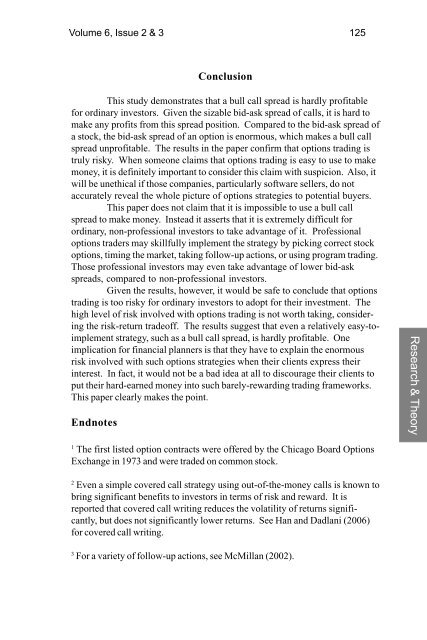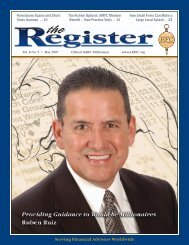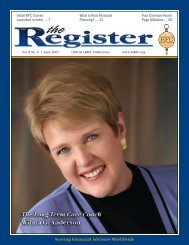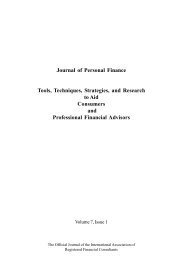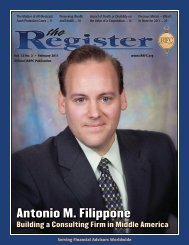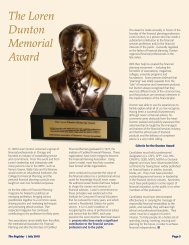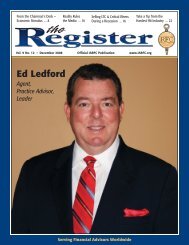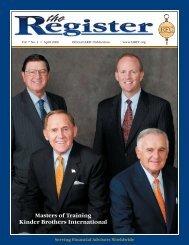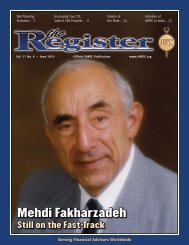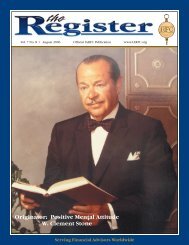3433-vol. 6 issue 2-3.pmd - iarfc
3433-vol. 6 issue 2-3.pmd - iarfc
3433-vol. 6 issue 2-3.pmd - iarfc
Create successful ePaper yourself
Turn your PDF publications into a flip-book with our unique Google optimized e-Paper software.
Volume 6, Issue 2 & 3 125<br />
Conclusion<br />
This study demonstrates that a bull call spread is hardly profitable<br />
for ordinary investors. Given the sizable bid-ask spread of calls, it is hard to<br />
make any profits from this spread position. Compared to the bid-ask spread of<br />
a stock, the bid-ask spread of an option is enormous, which makes a bull call<br />
spread unprofitable. The results in the paper confirm that options trading is<br />
truly risky. When someone claims that options trading is easy to use to make<br />
money, it is definitely important to consider this claim with suspicion. Also, it<br />
will be unethical if those companies, particularly software sellers, do not<br />
accurately reveal the whole picture of options strategies to potential buyers.<br />
This paper does not claim that it is impossible to use a bull call<br />
spread to make money. Instead it asserts that it is extremely difficult for<br />
ordinary, non-professional investors to take advantage of it. Professional<br />
options traders may skillfully implement the strategy by picking correct stock<br />
options, timing the market, taking follow-up actions, or using program trading.<br />
Those professional investors may even take advantage of lower bid-ask<br />
spreads, compared to non-professional investors.<br />
Given the results, however, it would be safe to conclude that options<br />
trading is too risky for ordinary investors to adopt for their investment. The<br />
high level of risk in<strong>vol</strong>ved with options trading is not worth taking, considering<br />
the risk-return tradeoff. The results suggest that even a relatively easy-toimplement<br />
strategy, such as a bull call spread, is hardly profitable. One<br />
implication for financial planners is that they have to explain the enormous<br />
risk in<strong>vol</strong>ved with such options strategies when their clients express their<br />
interest. In fact, it would not be a bad idea at all to discourage their clients to<br />
put their hard-earned money into such barely-rewarding trading frameworks.<br />
This paper clearly makes the point.<br />
Endnotes<br />
Research & Theory<br />
1<br />
The first listed option contracts were offered by the Chicago Board Options<br />
Exchange in 1973 and were traded on common stock.<br />
2<br />
Even a simple covered call strategy using out-of-the-money calls is known to<br />
bring significant benefits to investors in terms of risk and reward. It is<br />
reported that covered call writing reduces the <strong>vol</strong>atility of returns significantly,<br />
but does not significantly lower returns. See Han and Dadlani (2006)<br />
for covered call writing.<br />
3<br />
For a variety of follow-up actions, see McMillan (2002).


